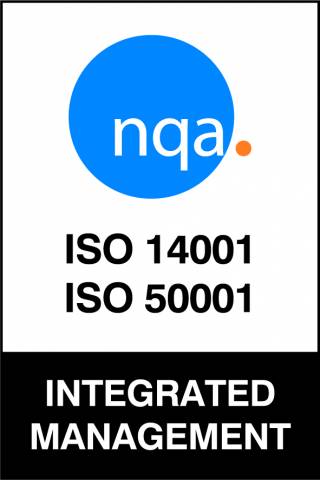UCL sets an example for environmental and energy management
2 August 2021
UCL has been certified for having an effective environmental management system that ensures limited negative environmental impact and sets examples for best practice during its annual ISO audit.

History and Outcome of the Audits


UCL’s Environmental Sustainability Management System (ESMS) and UCL’s Energy Management System (EnMS) help UCL ensure that we are limiting our environmental impacts ranging from sustainable materials use, to energy efficiency and the reduction of greenhouse gas emissions and consumption. The systems provide a structured approach to deliver our Sustainability Strategy commitments, including becoming a net zero carbon institution by 2030. UCL is assessed every year against the ISO assessment criteria and needs to show continuous improvement in its environmental sustainability and energy performance to maintain certifications.
UCL’s Environmental Management System has been certified to ISO 14001 standard since 2017, whilst UCL’s Energy Management System was created and certified to ISO 50001 standard in 2019. This year, UCL was successfully re-certificated to the international standard for environmental and energy management called ISO 140001 Environmental Management & ISO 50001 Energy Management, for another 3 years, following a 7-day recertification audit.
UCL’s Best Practice Areas
This year UCL showed exceptional performance and impact management in three areas that the auditor identified as "Best Practice". These where:
- Building Energy Management
UCL uses an innovative Building Energy Management System (BEMS) software, used by UCL’s BEMS contractor Kendra Energy, which proactively identifies opportunities to make energy savings and reduce energy costs. 22 Gordon Street is a great example of this approach, with the software pilot identifying potential energy savings even in a relatively new building.
- Building Switch Off
UCL used the time during lockdown to conduct in-depth monitoring of UCL buildings, switching off plants in buildings that were not being occupied and reducing the active hours in others. This significantly reduced UCL’s energy demand and costs.
- Catering
UCL’s new catering contract with CH&Co features: senior management support for the integration of sustainability in the tender process, a robust sustainability monitoring process and the appointment of a Sustainability Manager for the contract. This demonstrates how the contract contributes to delivering UCL’s sustainability strategy. Find out more about sustainability in our catering here.
- Soft Landings
UCL's soft landings process ensures that the project team working on a building considers how this building will be used once handed over to its occupants. There are 6 key steps to this. This process ensures that sustainability objectives are part of the initial design and the sustainability performance is tested after occupancy, e.g. testing energy efficiency targets of building against actual performance in operation.
What next?
Our ambition is to have a fully integrated environmental sustainability management system (ESMS) and energy management system (EnMS) for next year's audit. This will provide a more efficient and cohesive way of managing our environmental and energy impacts.
To learn more about our ESMS and EnMS systems, visit our webpage and our ESMS / EnMS SharePoint, which contains all registers, policies and procedures that make up the systems.
 Close
Close

